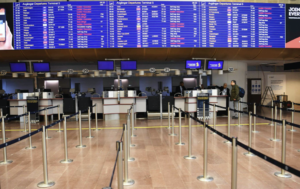
Economic growth after COVID-19 will be pivotal for climate change
-
It may seem daunting that the near shutdown of society didn’t cause a big enough reduction in emissions to stop climate change. But this just shows the limits of doing less of the stuff we normally do, instead of changing how our economies and infrastructure are powered. While lockdown measures have brought temporary reductions in emissions, there are better ways of doing this that cause less harm to society and people.
-
ESG is growing in importance for businesses and stakeholders everywhere.
-
The pandemic is helping increase awareness that companies must focus on long-term sustainability over short-term profits.
-
It will serve as a litmus test, dividing those firms who are serious about a low-carbon future – and those who are not.
-
The lockdown offered an invaluable test for our theories about how pollutants affect the climate. From this, we’ll be able to improve our models and make better predictions. We’ll also know better how to plan a strategy that reduces emissions from different sectors without inviting a sudden and sharp increase in global heating. Countries across the world took unprecedented action in the first few months of 2020 to control the spread of COVID-19. At its peak, one-third of the world’s population was in lockdown.
Car travel fell by 50%,
the number of flights plummeted by 75%
and industrial activity fell by around 35%.
With so many cars parked, aeroplanes grounded and factories closed, global carbon dioxide (CO₂) emissions fell by around 17% compared with the same period in 2019. But greenhouse gases such as CO₂ weren’t the only emissions to fall, and not all pollution heats the planet. Some of the industrial activities that shut down – particularly heavy industry, including steel and cement making – also produced aerosols, which are tiny particles that linger in the atmosphere for weeks and reflect heat from the Sun.
Only a decisive shift from fossil fuels will stabilise global temperatures. That’s why the decisions governments take to revive economic growth after COVID-19 will be pivotal. The 2008 financial crisis caused a similar slowdown, but emissions soon rebounded as a direct result of economic rescue packages which invested heavily in fossil fuels. We cannot afford to make the same mistake again.
What do you think?